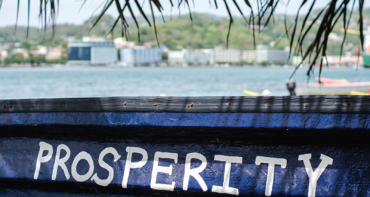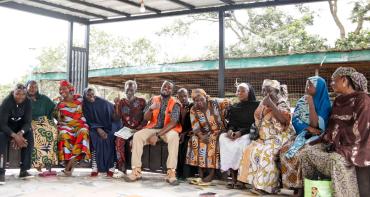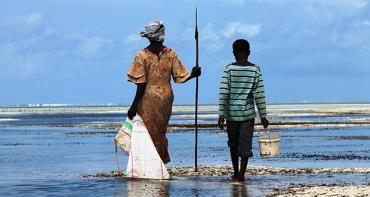The Commonwealth Secretariat and UK’s Department for Energy Security and Net Zero (DESNZ) today hosted a roundtable on gender and energy security at Marlborough House in London.

The event, which was held on the eve of the Summit on the Future of Energy Security, was attended by economists, academics, civil society advocates and representatives from the private sector. The delegates discussed an enabling environment for women to both contribute to and benefit from energy security and a just energy transition.
Held under the Chatham House Rule, the meeting raised critical questions and identified existing gaps that needed addressing.
One delegate reminded the audience that currently about 2.5 billion people around the world cook with traditional fuels – a population almost as large as the entire Commonwealth.
“This leads to thousands of deaths every year,” he added.
Cooking – as a gendered task - often falls to women and girls and they are disproportionately exposed to the health risks associated with these fuels.
Several participants shared successful examples of clean cooking projects which improved cooking practices and enhanced renewable energy usage – allowing children to study by solar light, not candlelight.
However, delegates also raised the startling statistic that even though these projects have been around for several decades they haven’t been scaled up to create lasting impact.
“Twenty years later and we are still talking about clean cooking. I am so frustrated,” rued a private sector delegate.
The “Energy Trilemma” was raised as an issue that is often used to demonstrate conflict or tension between having affordable and sustainable energy security. The energy trilemma refers to the components of energy policy, including energy security, energy sustainability and energy equity.
A participant from the Commonwealth Secretariat added that personal security should be included in the policy-making process, and that “something as simple as having streetlights can make a difference for women and their personal security. Gender-blind policy reinforces inequality.”
The roundtable discussed carbon credits and how scientific evidence and data needs to be clearer and disaggregated. For example, it was pointed out that sharing clean cooking equipment within communities was not the same as using the equipment to improve lives.
The role of Development Financial Institutions (DFIs) and their limiting policies were also highlighted.
“DFI policy excludes the use of fossil fuels which is preventing progress to scale programmes. Programmes do not need to be end-solutions, they should be part of the transition,” said a government delegate
About 30 experts from organisations such as the Royal Commonwealth Society, OECD, KPMG C-Suite Leadership Programme, POWERful Women, Shell, BP, Women in Carbon, Energy UK and National Grid attended the roundtable.
The Summit on the Future of Energy Security is being hosted by International Energy Agency (IEA) and the UK Government.
Media contact
-
Suné Kitshoff Senior Communications Officer, Communications Division, Commonwealth Secretariat
- M: +44 7740 450 901 | E-mail



